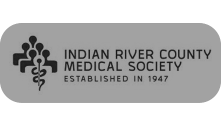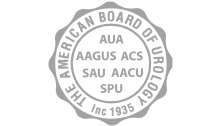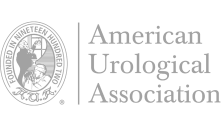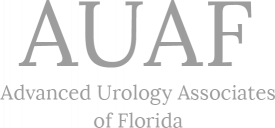Nutrition and Prostate Cancer Prevention
Recent scientific studies have revealed a strong link between diet and prostate cancer. These studies indicate that men who wish to reduce their risk of developing prostate cancer, as well as men who have been treated for prostate cancer in the past, may benefit by increasing their intake of five key nutrients. These nutrients may be obtained by eating certain foods, or through the use of nutritional supplements.
Selenium
Selenium is a trace mineral which is an essential part of our diet. It functions as an antioxidant in our bodies, helping to prevent and repair cellular damage.
The best dietary sources of selenium include bread, grains and plant foods. However, the selenium content of the soil, which can vary dramatically in different parts of the world, determines how much selenium is found in the plants grown in that soil. Many studies have shown that prostate cancer rates are higher in areas with less selenium in the soil.
In a recent double-blind, placebo-controlled cancer prevention trial, men who took 200 micrograms of selenium supplementation daily had a 63% reduction in the risk of developing Prostate cancer.
Vitamin E
Research studies have shown vitamin E to be helpful in controlling certain illnesses, including heart disease, diabetes and colon polyps. In a 1998 study published in the Journal of the National Cancer Institute, men were given either 50 ID of vitamin E or placebo. The men who took vitamin E had a 32% reduction in their risk of developing prostate cancer.
Since foods rich in vitamin E tend to be high in fat, the best way to increase your vitamin E intake is with a dietary supplement.
Not all vitamin E supplements are the same. Vitamin E is actually a family of compounds known as tocopherols. There are 4 tocopherols—alpha, beta, delta and gamma. Most vitamin E supplements contain an inexpensive, synthetic type of vitamin E known as "di-alpha-tocopherol." Natural vitamin E, which is a mixture of all 4 tocopherols, alpha, beta, delta, and gamma, has been shown to be more effective in suppressing the growth of prostate cancer cells. Better quality vitamin E supplements contain this "natural" vitamin E, which is sometimes called "mixed tocopherols."
Vitamin D
Vitamin D helps regulate the body's calcium balance, and it also appears to play an important role in cancer prevention. Milk and milk products are our primary dietary source of vitamin D.
Our bodies, if exposed to enough sunlight, will make most of the vitamin D we need. Studies confirm that men with lower levels of viatmin D in their blood have a higher risk of developing prostate cancer. This may explain why men living in northern latitudes, who are exposed to less sunlight, have a higher incidence of prostate cancer.
In a recently pubished study, daily supplementation with 400 IU of vitamin D actually slowed the rise of PSA in men already diagnosed with prostate cancer. As a recent review article stated: "indications at present suggest that vitamin D will prove to be useful in the prevention and therapy of prostate cancer."
Lycopene
Lycopene is a carotenoid—a plant pigment which acts as a powerful antioxidant in our bodies. Several recent studies have revealed a remarkable link between an increased dietary intake of lycopene and a reduced risk of prostate cancer. Tomatoes are the best dietary source of lycopene, which is responsible for the rich red color we are so familiar with. Interestingly, cooked tomatoes are a better source than raw. An article published in The Journal of the National Cancer Institute concluded : "frequent consumption of tomato products is associated with a lower risk of prostate cancer."
In a recent study, men with newly diagnosed prostate cancer were treated with either placebo or 30 milligrams of lycopene supplement a day. The results revealed that lycopene supplementation appears to decrease the growth of prostate cancer cells.
Soy Isoflavones
China, Japan and Korea have the lowest prostate cancer death rates in the world. What protects the men in these countries from prostate cancer? Their diet. Specifically, a diet which is low in fat and high in soy products.
"Soy products, which includes foods such as tofu, soy milk and soy burgers, contain compounds known as isoflavones, which are actually "plant estrogens." These compounds act as antioxidants preventing and repairing cellular damage, and may also directly suppress the growth of prostate cancer cells.
While the average Asian diet contains 50 to 100 milligrams of isoflavones per day, the average western diet contains less than 5 milligrams. The easiest way to increase your intake is to use a soy supplement which is rich in isoflavones.
Who should use these nutritional supplements?
If proper nutrition can help prevent prostate cancer, does every man need a dietary supplement? Probably not. For most men, maintaining a diet low in fat and rich in antioxidants and soy will help reduce risk. But for men who are at higher risk for prostate cancer, a nutritional supplement may be the best idea. This includes men with:
- a PSA that is high or rising
- a family history of prostate cancer
- a previous biopsy with PIN or dysplasia
- previously treated prostate cancer








